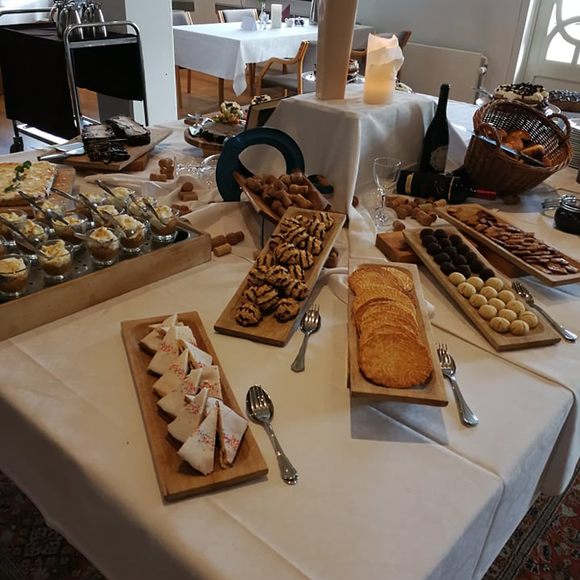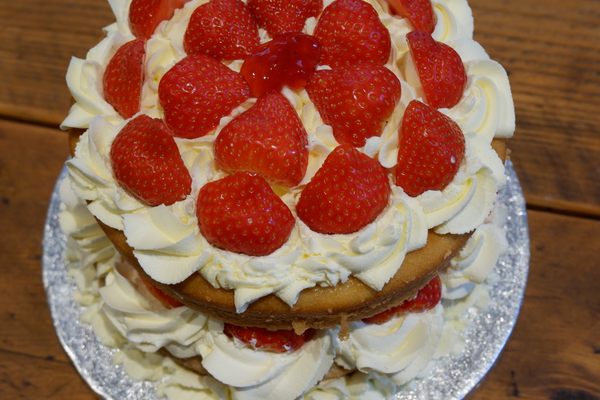Sweets
Southern Jutland Coffee Table
These cake-laden tables fueled community meetings that helped bring Southern Jutland back into Denmark.
With the end of the Second Schleswig War in 1864, the Danish region of Southern Jutland came under Prussian control, which was highly unpopular among many locals. Danes gathered regularly in the community houses for political meetings with patriotic songs and speeches. These were not necessarily legal in what was then called North Schleswig, especially if alcohol was involved. To get around the law concerning alcohol licenses, the Danes simply served coffee.
In Denmark, coffee gatherings are like what the British call “teatime.” Coffee is the beverage served, but it’s more about the items that accompany it. In this case, cake, rolls, and cookies (or “biscuits,” as Danes use the British term). A “full” table would feature seven types of hard treats (cookies) and seven types of soft treats (cakes and rolls), all brought by attendees. “Cake” in Denmark is also a general term for a sweet baked good.
After the reunification of Southern Jutland and Denmark in 1920, the coffee table generally died out. However, a few regional restaurants have kept the tradition alive as a sweet way to remember this time in Danish history.
Where to Try It
-
Gram Slot Website
54 Slotsvej, Gram, 6510, DenmarkThis restaurant typically hosts a coffee table snack time on the first Sunday of every month around 1:00 p.m. Check their website or email booking@gramslot.dk to confirm.
Written By
 sontaron
sontaron
Sources
- www.kongeaastien.dk/en/content/southern-jutland-coffee-table
- www.visitsonderjylland.com/ln-int/sonderjylland/southern-jutlandic-coffee-table
- Adriansen, Inge. Det Sønderjyske Kaffebord - et samspil mellem nationalpolitik og kosttradition. Grænseforeningens, 1998
- www.visitsonderjylland.com/ln-int/sonderjylland/reunification-1920

















